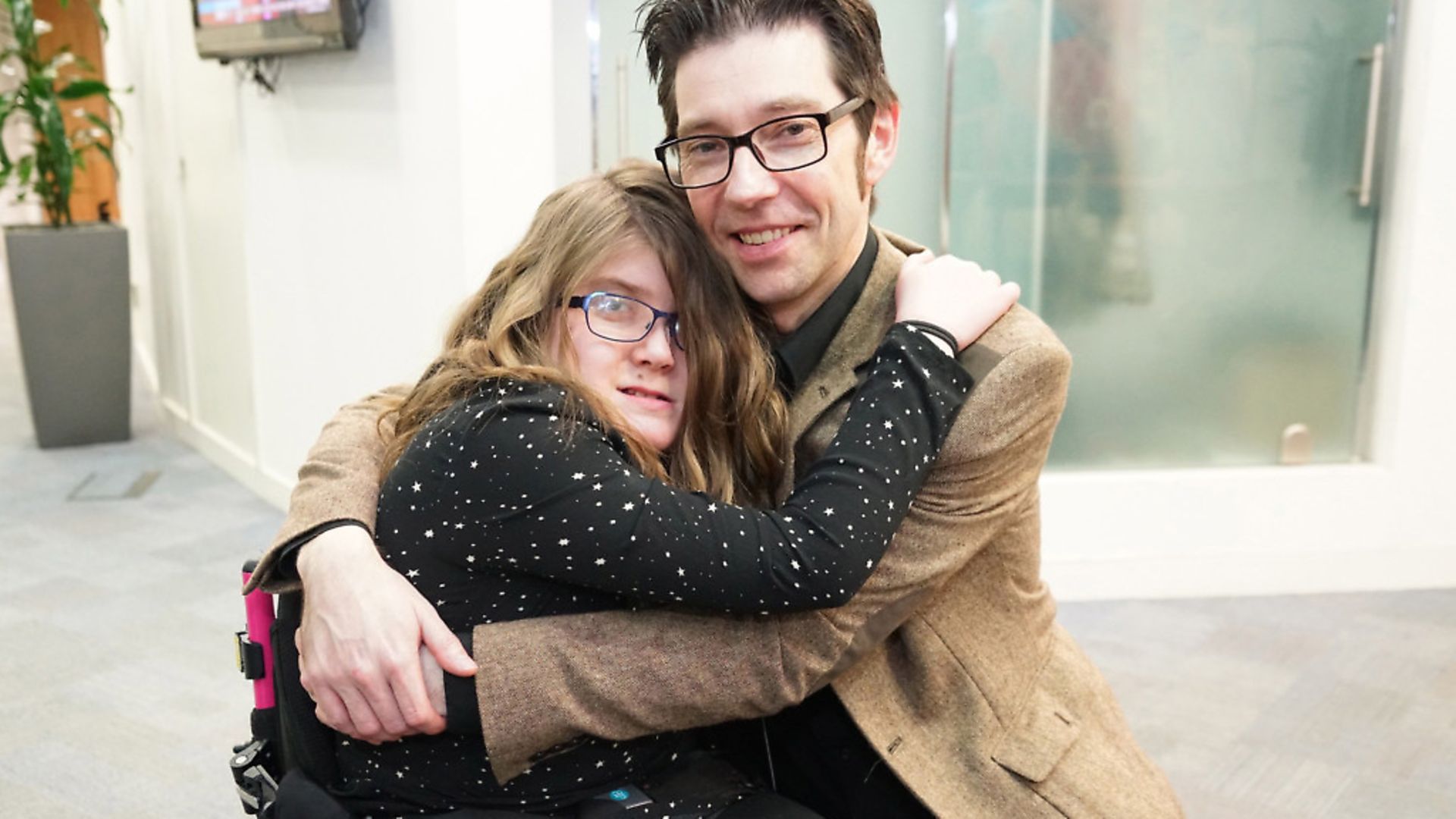
DAN WHITE explains why so many of Britain’s disabled community are fearful of a no-deal Brexit.
My daughter Emily is just one of the estimated 14 million disabled people living in the UK. Although she was too young to vote in the EU referendum, many in the community did.
Of course, members of that community will have voted in different ways and for different reasons. But for me, one of my main motives for backing Remain – and continuing to fight against Brexit – is the incredibly important role the European Union has played in the development of disability law.
From the perspective of a parent with a disabled child, it was wonderful to be part of an organisation like the EU, which was actively promoting inclusion as a priority. Now, as Britain heads for the exit, there is a risk of the country heading back to the dark ages of disability exclusion.
To understand my concerns – and those of others in the UK’s disabled community – examine the facts: The first EU-constituted piece of legislation against disability discrimination was the Framework Directive for Equal Treatment in Employment and Occupation in 2000, which set out to protect workers against discrimination on account of race, sexual orientation, religion and, of course, disability.
This directive forced the UK’s DDA (Disability Discrimination Act) to amend its archaic law which stated that companies with less than 20 employees were protected if they discriminated on grounds of disability – odd to have a discrimination act which discriminated.
In 2010, along came the rather wonderful European Disability Strategy, which aimed to eliminate barriers across Europe, allowing disabled people full rights to inclusive education, employment, health and so much more.
At the moment, people with disabilities can continue to claim their essential benefits across the EEA (European Economic Area), such as PIP and carer’s allowance, affording travel with peace of mind.
The EU also established the right of disabled people to access air travel, which includes assistance getting on and off planes, and care of equipment, such as wheelchairs. Although the performance of most UK airports in this area remains pretty terrible, and their attitude often lacklustre, the law is at least still on our side.
Then there is the scheme created by the EU for people with complex health needs, the European health insurance card, which can provide emergency medical treatment abroad which is on par with that available to locals.
The sad fact is that British paranoia about health tourism, coupled with Brexit, could mean the end of this and other, inclusive practices. Disabled young people, including my daughter, could face barrier after financial barrier when it comes to travel.
There has also been huge investment from the EU – specifically, from the European Social Fund – designed to make life easier in our still inaccessible society. Whether such funding and investment will continue in the UK after Brexit remains a doubt.
But the EU’s drive to promote disability inclusion has not just been on a funding and law-making front. Freedom of movement has also ensured that our health care system is supplied with the huge workforce that disabled children and adults cannot do without.
According to the think tank Global Future, an end to freedom of movement could have a devastating impact on social care. It has predicted a shortfall of 380,000 staff in the sector in England by 2026, unless roles can be filled by people from overseas – a frightening scenario for many dependent on round-the-clock care. Migration plays a pivotal role in this sector, which is already buckling under the weight of under-funding and staff shortages. The thought of Emily, who is now 13, not being able to access care for her many needs is terrifying.
An even more immediate personal concern of mine is the supply of medicines in the event of a no-deal Brexit this autumn. Emily relies on pharmaceuticals to keep her body free of infection, especially her kidneys, and for a child terrified of operations, we are concerned that missing a drug could lead back to the operating theatre. There are many more in the same, scared scenario.
Of course, the future is an undiscovered country, and we do not know with absolute certainty what will happen. But without that certainty and clarification, fear creeps in.
Remember, you judge a society on how it treats its most vulnerable citizens, and to date Westminster is failing on all counts. The EU has been an incredibly resourceful benefactor, supporter and companion to the disabled community. It is no surprise that our impending departure is so alarming for so many of them.
Dan White is a writer, disability and mental health campaigner; follow him on Twitter @Danwhite1972









